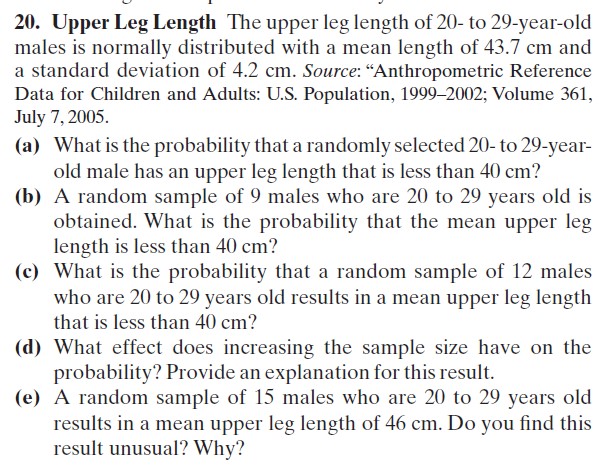Probability with samples?
Answer whichever part (a-e) you can/want to :)

Answer whichever part (a-e) you can/want to :)

1 Answer
a)
b)
c)
d) not sure see explanation for more
e) unusual as it exceeds 2 z-scores (or 2 standard deviations)
Explanation:
Given information
Working it out
a)
#P(X\lt40)=P(z\lt(40-43.7)/4.2)=P(z\lt-3.7/4.2)# #=P(z\lt-0.8810)\approx0.189#
b)
#n=9\rarr\sigma_{\bar{x}}=4.2/\sqrt{9}=4.2\div3=1.4\rArrP(\bar{x}\lt40)# #=P(z\lt-3.7\div1.4)=P(z\lt-2.6429)\approx0.0041#
c)
#n=12\rarr\sigma_{\bar{x}}=4.2/\sqrt{12}\approx1.2124\rArrP(\bar{x}\lt40)# #=P(z\lt-3.7\div1.2124)=P(z\lt-3.0517)\approx0.0011#
d) Increasing sample size appears to lower probability. This is likely because --
e)
#n=15\rarr\sigma_{\bar{x}}=4.2/\sqrt{15}\approx1.0844# #\bar{x}=46;z=(46-43.7)/(1.0844)\approx2.1209#
This result is unusual as it exceeds a z-score of 2.

